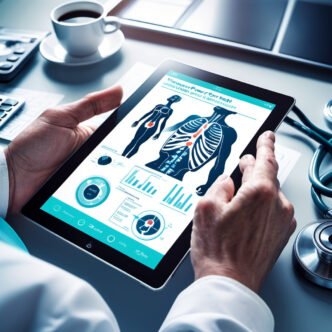Technology has become the cornerstone of modern society, influencing every aspect of human life. From communication and transportation to healthcare and entertainment, technology shapes the way we live, work, and connect. As innovations continue to emerge at a rapid pace, it is essential to explore how technology impacts our world and its potential to transform the future.
What is Technology?
Technology refers to the application of scientific knowledge for practical purposes. It encompasses tools, systems, and innovations designed to solve problems, improve efficiency, and enhance human experiences.
The Core Pillars of Technology
- Innovation: Creating novel solutions to complex challenges.
- Connectivity: Linking people, devices, and information worldwide.
- Efficiency: Optimizing processes to save time, resources, and energy.
The Evolution of Technology
Technology has evolved significantly over the centuries. From the invention of the wheel to the development of artificial intelligence, each technological leap has redefined societal norms and possibilities.
Milestones in Technological Advancement
- Industrial Revolution: Introduced machinery that transformed manufacturing and transportation.
- Information Age: Brought computers and the internet, revolutionizing how we access and share information.
- Digital Transformation: Integrates advanced technologies like AI, IoT, and blockchain into everyday life.
Key Areas of Technological Impact
Technology has made profound contributions across various sectors. Below are the most notable domains influenced by technological advancements:
- Communication
The advent of smartphones, social media platforms, and instant messaging apps has redefined how people interact. Technology enables real-time communication across the globe, bridging cultural and geographical gaps.
- Video Conferencing: Facilitates remote collaboration.
- Social Networking: Builds virtual communities.
- Healthcare
Technological innovations in healthcare have improved patient outcomes, streamlined operations, and advanced medical research.
- Telemedicine: Provides remote healthcare services.
- Wearable Devices: Monitor vital signs and fitness levels.
- AI Diagnostics: Enhances accuracy in detecting diseases.
- Education
Technology has transformed the education landscape through e-learning platforms, digital classrooms, and educational apps. These tools make education more accessible and engaging.
- Personalized Learning: Tailored content for individual needs.
- Gamification: Uses interactive elements to enhance learning experiences.
- Business and Commerce
The digitalization of business processes, from online marketplaces to cloud computing, has increased efficiency and expanded global reach.
- E-commerce Platforms: Simplify shopping and payment processes.
- Data Analytics: Informs strategic decisions.
- Entertainment
Streaming services, virtual reality, and gaming technologies have redefined entertainment, offering immersive and on-demand experiences.
Emerging Technologies Shaping the Future
The future of technology lies in emerging innovations that promise to address complex global challenges. Here are the key technologies that are paving the way forward:
- Artificial Intelligence (AI)
AI enables machines to learn and perform tasks autonomously, impacting industries like healthcare, finance, and automotive.
- Deep Learning: Powers natural language processing and image recognition.
- Robotics: Enhances automation and precision.
- Internet of Things (IoT)
IoT connects devices to the internet, enabling smarter homes, cities, and industrial systems.
- Smart Homes: Use IoT devices for automation and energy efficiency.
- Industrial IoT: Optimizes manufacturing and supply chain management.
- Blockchain Technology
Blockchain ensures secure, decentralized transactions and is revolutionizing finance, supply chains, and identity verification.
- Cryptocurrency: Facilitates digital payments.
- Smart Contracts: Automate agreements without intermediaries.
- Renewable Energy Technology
Innovations in solar, wind, and battery technologies are reducing our reliance on fossil fuels and promoting sustainable energy solutions.
Challenges of Technological Adoption
While technology offers numerous benefits, its adoption comes with challenges that require careful consideration and resolution.
- Cybersecurity Risks
As more systems go online, the risk of cyberattacks increases. Protecting sensitive data is a top priority for businesses and governments.
- Ethical Concerns
AI and automation raise ethical questions regarding job displacement, privacy, and decision-making accountability.
- Accessibility
Not all populations have equal access to technology, creating a digital divide that hinders global progress.
The Future of Technology
The potential of technology is limitless. From advancements in quantum computing to breakthroughs in biotechnology, the future promises exciting innovations that will redefine how we live and work.
Green Technology
Sustainable technologies are focused on reducing environmental impact while meeting human needs. Innovations like carbon capture and smart grids are critical in addressing climate change.
Space Exploration
With companies like SpaceX and NASA pushing boundaries, space technology is making interplanetary travel and exploration a reality.
Conclusion
Technology has become an integral part of modern life, driving progress and innovation across every domain. While challenges remain, the opportunities it presents far outweigh the risks. As we embrace the future, responsible technological development will be key to building a sustainable, inclusive, and connected world.













